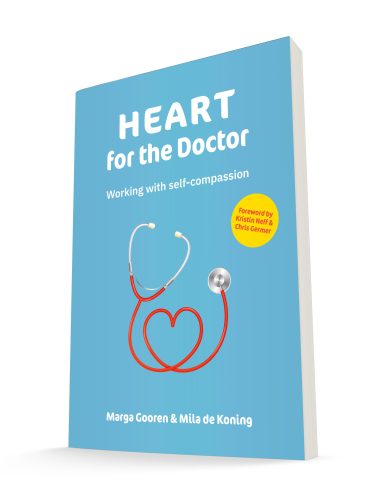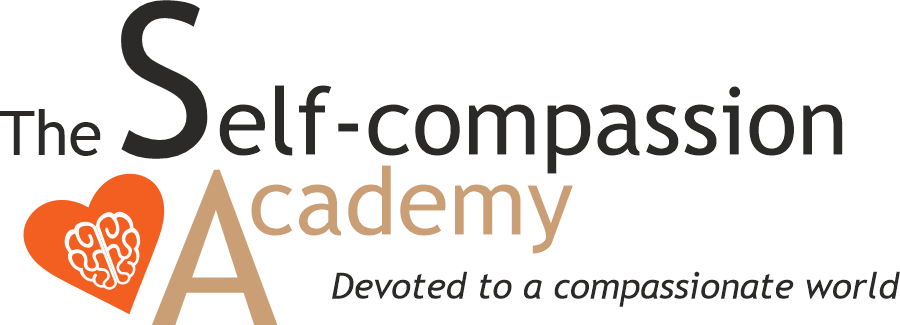Caring for others starts with caring for yourself
Healthcare professionals give so much of themselves to others, often forgetting their own needs. Our book teaches you to work with self-compassion in a practical way.
Caring for others starts with caring for yourself
Healthcare professionals give so much of themselves to others, often forgetting their own needs. Treat yourself with the same care as you treat your patients
What do we offer?

Mindful Self-Compassion Courses for everyone
We offer a variety of formats in-person and online. Like: 8 week courses, 4 week core-skill courses and a 6 week short course. We also offer courses for specific target-groups like healthcare professionals and the LHBTQI+ community.

MSC Teacher Training
For those passionate about sharing the power of self-compassion with others, we provide MSC Teacher Trainings. Our teacher trainings are offered by senior teacher trainers. We pride ourselves in a personal approach and will support you during every step of the teacher training.

Deepen your MSC practice or teachings
We encourage and support you in deepening your personal MSC practice. Through our courses and ongoing resources, we provide the tools and guidance to help you explore the depths of self-compassion. Embrace the transformative power of deepening your practice and witness its profound impact on yourself and those you teach.
Although you’re trained to care for others daily, medical education doesn’t teach you how to care for yourself.
It doesn’t cover how to deal with pain, sorrow, fear, or the traumatic experiences you encounter. The message is to shield yourself from emotions and push through. On top of that comes the pressure from ongoing changes in healthcare.
That's where self-compassion comes in
Self-compassion supports you in dealing with these realities in a healthier way. It teaches you to be gentle with yourself, manage difficult emotions and challenging relationships, recognize your needs, and set healthy boundaries.
It’s not just helpful for doctors feeling stressed or burned out; it’s valuable for every doctor.
Support us
Navigate the demands of your profession with greater resilience and compassion
Doctors love their profession. 70 to 80 percent of physicians report being satisfied or very satisfied with their careers. Having a positive impact on someone’s life, truly making a difference, brings immense fulfillment.
And yet…
Newspapers and medical journals are filled with troubling stories about doctors facing overwhelming workload and burnout.
We see this firsthand in our work with doctors. We meet physicians with young families who struggle to find balance, doctors wrestling with workloads and unnecessary bureaucratic demands, residents working hard to meet expectations and make the right choices, and senior doctors finding it more challenging to manage on-call shifts.

A practical resource for every physician
These challenges inspired us to write Heart for the Doctor – Working with Self-Compassion. This book is a practical and heartfelt resource designed to help physicians navigate the demands of their profession with greater resilience and self-compassion.
Drawing on years of teaching mindfulness and self-compassion to healthcare professionals, we offer tools, insights, and real-life examples to support doctors in finding balance and fulfillment in their careers. Whether you’re a resident, a physician balancing work and family, or a seasoned professional, this book provides a path toward sustainable well-being.
What our readers say
"The authors capture the unique culture of medicine and how the profession affects a physician’s body, mind, and spirt. An excellent resource for any physician looking to improve their caring for their patients and themselves."
Paula Gardiner, Adjunct associate Professor Family Medicine. Boston University
Cultivating self-compassion not only enhances our personal well-being but also positively impacts on the ability to deliver the best possible care to our patients. I can highly recommend Heart for the doctor; working with self-compassion which combines evidence-based foundation with practical exercises, specifically tailored for doctors.”
Dr. Ira van der Steenstraten, President Queensland Medical Women’s Society, Vice President Doctors’ Health in Queensland, Co-developer of the AMAQ ‘Well-being at Work’ program for doctors.
"The biggest challenge we face in the future of healthcare is the health of our healthcare professionals. If they are in good shape, they can provide the best possible care to their patients. This book identifies the most important condition for this: the genuine, heartfelt attention to your own needs that is the essence of self-compassion.”
Carina Hilders, Chair of the Executive Board UMC Utrecht, Professor Medical Leadership EUR (ESHPM), gynaecologist
"Both authors have a wealth of relevant experience and have produced a book that should be required reading for every doctor!”
Bart Timmers, general practitioner and teacher
The impact of self-compassion on doctors’ well-being is scientifically proven.
It’s especially effective in managing the external and internal factors that cause stress for physicians.
As a doctor, you’re often highly responsible and self-critical by nature. You’re deeply committed and dedicated to caring for others. You’ve studied and worked hard for years, often putting your own needs aside to help others heal.
But how are you doing? To care for others, you first need to care for yourself. You can’t pour from an empty cup. Or, as the in-flight instruction goes: you must put on your own oxygen mask before assisting others.
Why does that matter?
Because it has great consequences. The doctor experiences less enjoyment, less energy, or even becomes ill.
This impact reaches their loved ones too. Doctors are often absent, bringing work home, and may become more easily frustrated.
And, of course, it effects the patients. Overworked doctors have less focus, are more prone to mistakes, and risk losing the personal connection that’s so essential in care.
This book is about the person behind the doctor. How can you maintain your balance? How can you keep finding joy in your work? How do you preserve your energy for life outside of work? How can you remain the best doctor you can be, giving patients the compassionate care that drew you to this profession in the first place?
About the authors
Since 2013, Marga Gooren and Mila de Koning have joined forces to bring mindfulness and self-compassion to the healthcare world. Over the years, they’ve trained countless doctors through workshops and programs, helping them find balance and resilience in their demanding roles and integrate self-compassion into their lives. Their shared mission is to create a ripple effect, empowering caregivers to care for themselves so they can continue their vital work with energy, clarity, and compassion.


